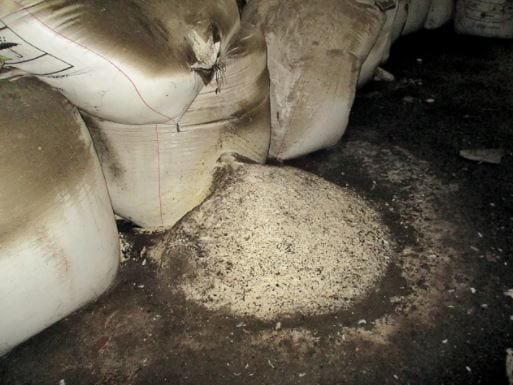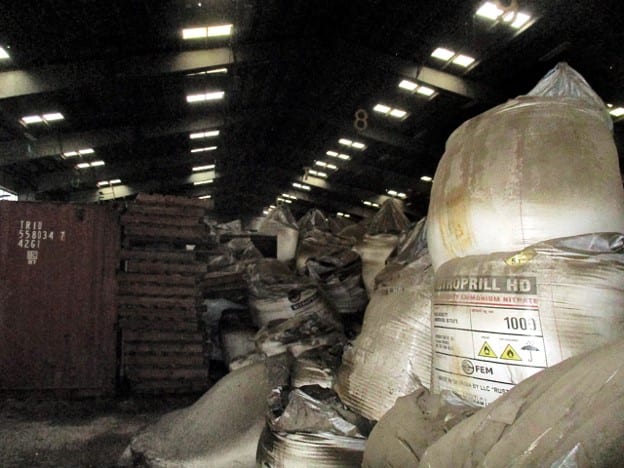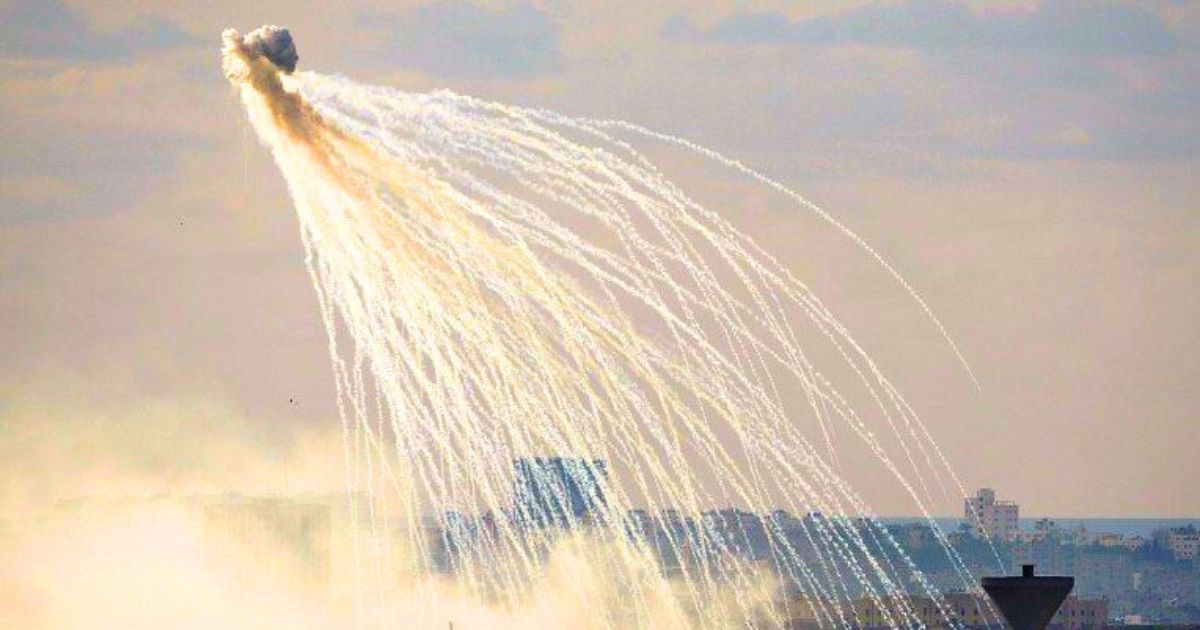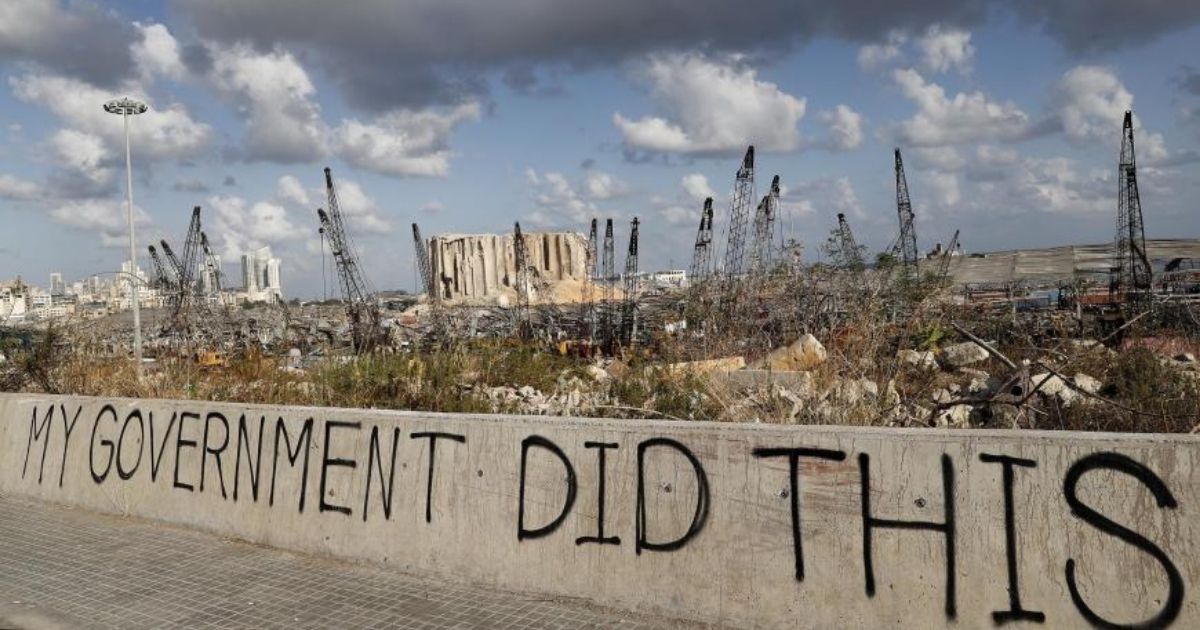Aside from the basic story of 2,750 tonnes of ammonium nitrate aboard the Rhosus, people in Lebanon don’t know the exact cause that yielded the August 4 explosion of Beirut port.
They are still in the dark with no explanation from the country’s officials, other than hearing about arrests and interrogation.
Meanwhile, the world experts and investigators have been busy digging for more information and explaining their findings and deductions to the public.
Like all that is related to this demise so far, the Lebanese are relying on them to supply them with some explanations, the way they have been relying on external aid to help them out through this catastrophe.
The latest that came from foreign experts is that there had to be something else in Hangar 12 that caused the massive catastrophe because ammonium nitrate on its own is not enough.
They are correct.

“In the same hangar were jugs of oil, kerosene, and hydrochloric acid; five miles of fuse on wooden spools; and 15 tons of fireworks — in short, every ingredient needed to construct a bomb that could devastate a city,” wrote The New York Times.
All the ingredients for a perfect monstrous bomb were there. The fireworks did not just ignite the ammonium nitrate.
They served as detonators of the “ingredients” that were stored together, as explained by the explosives experts to The New York Times.

That led to an initial explosion followed by the second deadly one.
Jimmie Oxley, a chemistry professor at the University of Rhode Island, explained to the newspaper that the initial explosion showing “a smoky mix of partially combusted ammonium nitrate” is deemed “an inefficient blast,” which suggests “that it wasn’t set off on purpose.”
Investigations, so far, say so. The welding sparked it. Yet it all amounts to years of deep-rooted corruption, government dysfunction, and the politics of turning a blind eye, including neglecting to act despite the grave warnings.

In fact, security officer Joseph Naddaf was one of the first to warn of the imminent danger… only to find that many Lebanese officials already knew. Curiously enough, he was detained as a suspect in relation to the incident.
After investigation, The New York Times reported that Lebanon’s “corrupt and dysfunctional system” not only ignored the threat but did so while “enriching the country’s political leaders through bribery and smuggling.”
This does not come as a surprise to the Lebanese.

The disaster-in-waiting was the result of years of neglect and bureaucratic buck-passing by a dysfunctional government that subjugated public safety to the more pressing business of bribery and graft.
The New York Times
Lebanese are not ignorant of the fact that nothing used to move in the port without “gifts.” It is common knowledge to them that customs officers take kickbacks, overlook things, and give people “passes” on their goods.
“The Ali Baba’s Cave” is what the Lebanese people got to call the Beirut port, something The New York Times pointed out to.
Scandals have been too many and often revealed by Lebanese investigative journalists, like Riad Kobaissi of Al-Jadeed TV. Politicians will even exploit disabled family members to gain exemptions and import luxury goods without paying taxes.
Just take this example. “Last year, the Ministry of Social Affairs granted a 3-month-old infant with Down Syndrome an exemption to import a luxury car tax-free,” reported The NY Times.
That’s how blunt and daring corruption has been going on in the country.
And it all goes back to how the civil war ended with militiamen in the government and more branching out in power, developing their own sectional governances of the country’s affairs, in the name of sectarianism.
According to the newspaper, when the war ended, the designated-government appointed six people linked to the main political parties to run the port temporarily “until a permanent arrangement could be found.”
The temporarily became permanent. The status never changed ever since. Those politically-backed people still run the port today. “Its members have not changed in nearly two decades.”
“The parties installed their loyalists in key port jobs, where graft supplemented their salaries as security officers, administrators, and customs inspectors, and positioned them to spirit goods through the port for their patrons.”
The New York Times
So it’s common that political parties take advantage of tax exemptions for their own benefit and the benefit of members in their party.
While these political parties have a stake at the port, some more than others, and were benefitting from it, no one did anything to protect it or remove the lurking danger waiting to blow up the capital any moment during six long years.
When the explosion occurred, Lebanese officials who had known of the dangerous material met up in Baabda palace to discuss it. “The meeting quickly devolved into shouting and finger-pointing,” a person in the meeting told The New York Times.
Not surprising for the Lebanese people. The blame-game, that’s entrenched in the political theatre of the country all the way down to the government institutions. No one takes responsibility and it’s always the fault of someone else.
Back to the Hangar 12, ironically, it was only when an effort was finally made to secure the reported holes and openings that complete devastation fell upon Beirut.
All it took was welding work near the hazardous material on that doomed day. To date, this is the scenario most people agree about.
How the ammonium nitrate got there and why it stayed so long is another long story yet also stinking with corruption whatever the discussed angle and the blame-game.
It is further backed up by the fact that on September 10th, another massive fire broke out at the port of Beirut reportedly caused by more welding, or allegedly so.
Since the welding was deemed so dangerous, why was it happening now at the port when explosive substances are still being uncovered at the port?
Why isn’t the government focused on locating missing victims or to rebuild homes, businesses, and infrastructure of crumbled Beirut?
The port is emblematic of everything the Lebanese protesters say is wrong with their government, with dysfunction and corruption hard-wired into nearly every aspect of the operation.
The New York Times
“Nothing appeared to have mattered to them more than rebuilding the port, even though we have two other functional and well-equipped ports in the country,” a Lebanese journalist expressed to The961.
“Everything else has been left untended to, including the ongoing humanitarian crisis caused by the explosion.”
Certainly, the priorities of the ruling politicians are not in order and it is that which ultimately led to the city’s demise.
Fact is, never has it been so quick of a repair or restoration in the country as was the speed in which Beirut port was put back into operation after the blast. Again, Lebanon has two fully operational ports other than the Beirut one.
The emergency was in fact, and still is, to attend to the 300,000 people displaced and the tens of thousands of damaged homes and businesses, aka a major part of Lebanon’s capital, the heart of Beirut.






